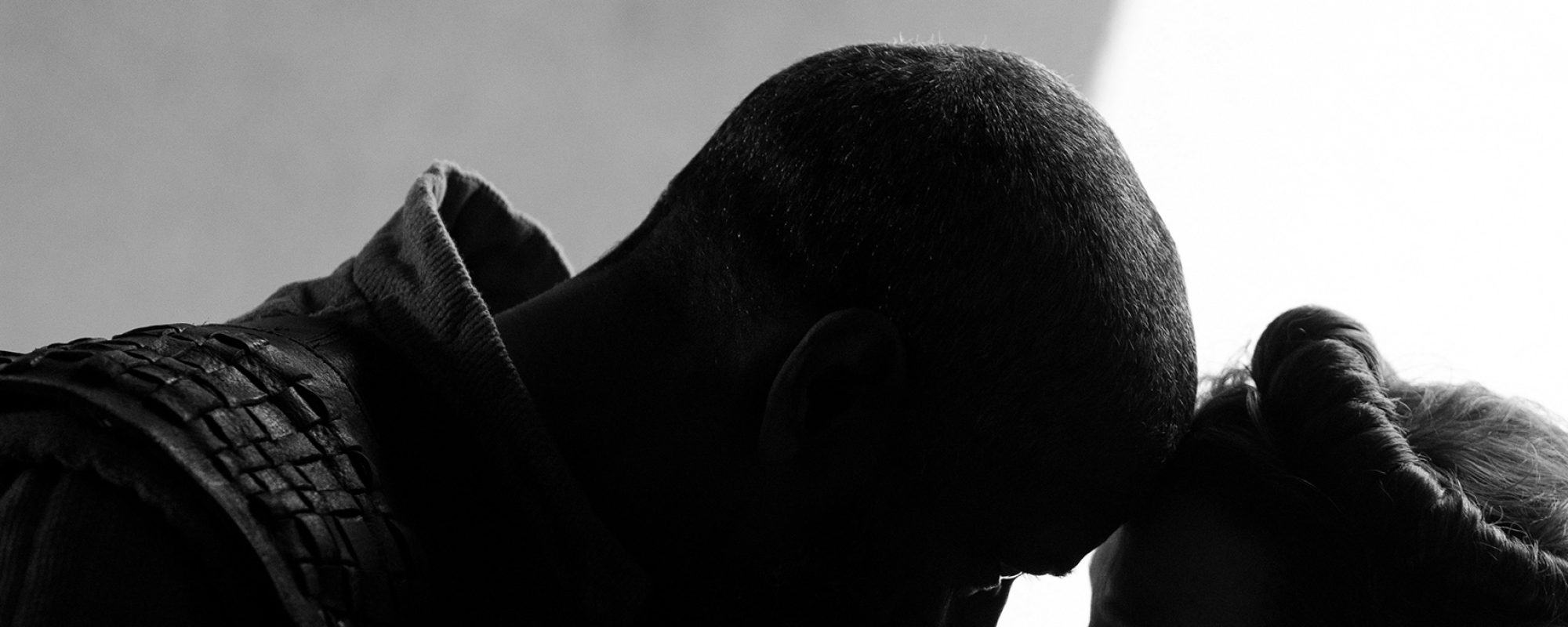All Videos
Clubhouse Conversations — The Tragedy of Macbeth
In this 59-minute episode, cinematographer Bruno Delbonnel, ASC, AFC details his visual approach to this stylish Shakespearian drama, in discussion with interviewer Shelly Johnson, ASC.
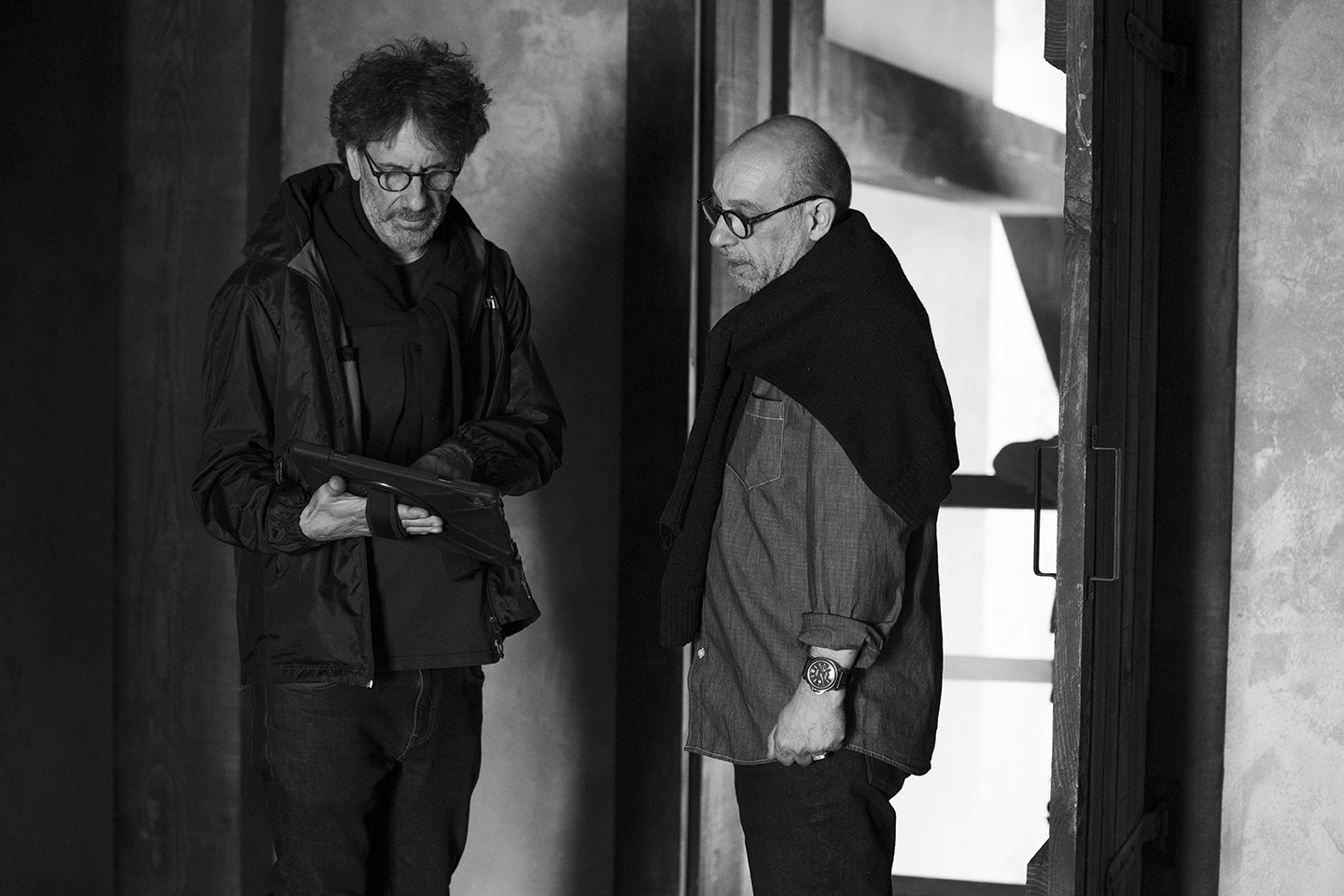
Adapted for the screen and directed by Joel Coen (above, on left, with Delbonnel), The Tragedy of Macbeth reinvents Shakespeare’s masterpiece in a brilliant, innovative blend of cinema and theater.
The stark, stunning black-and-white cinematography results from a close collaboration between the director and cinematographer that permeated many other aspects of the film’s conception.
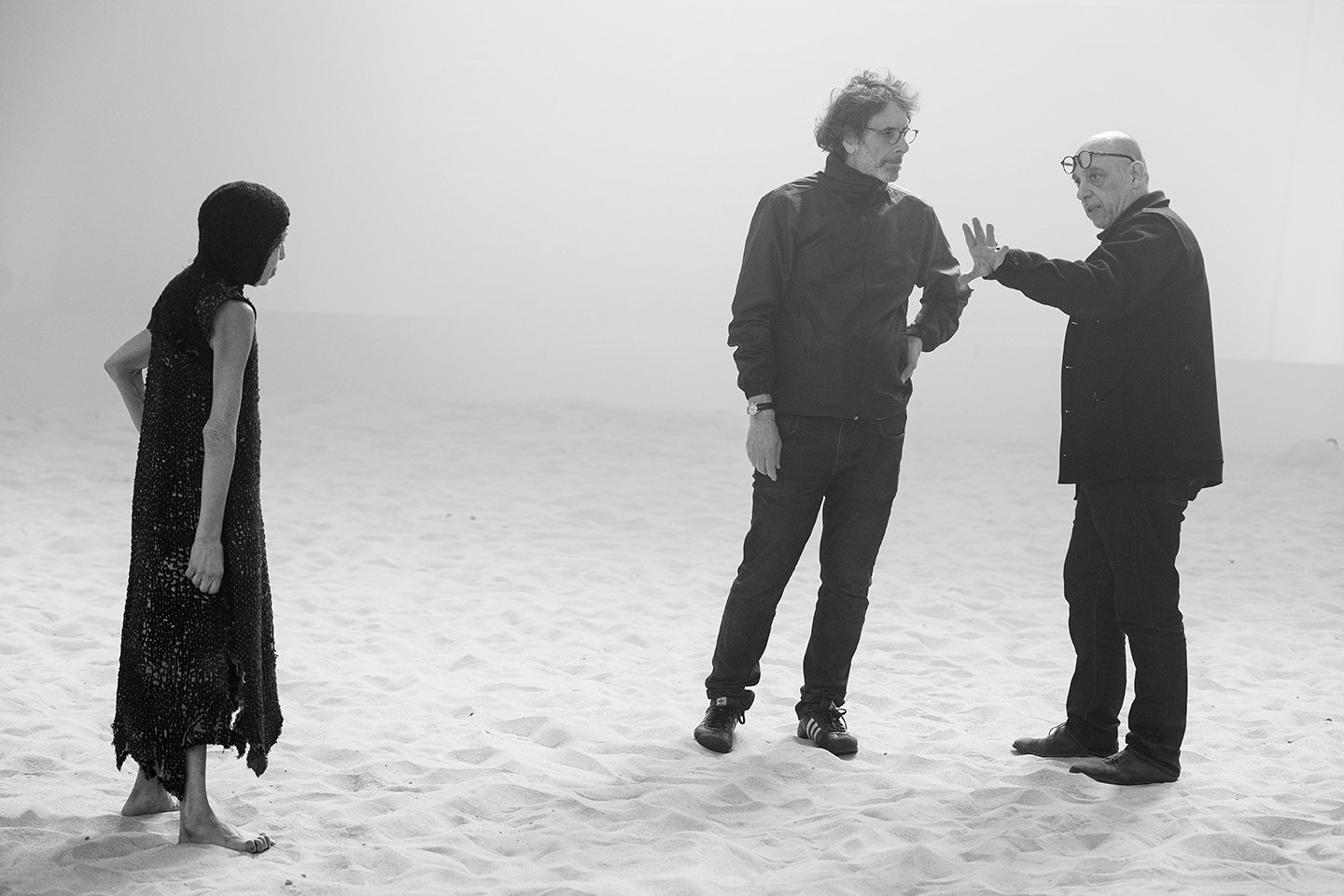
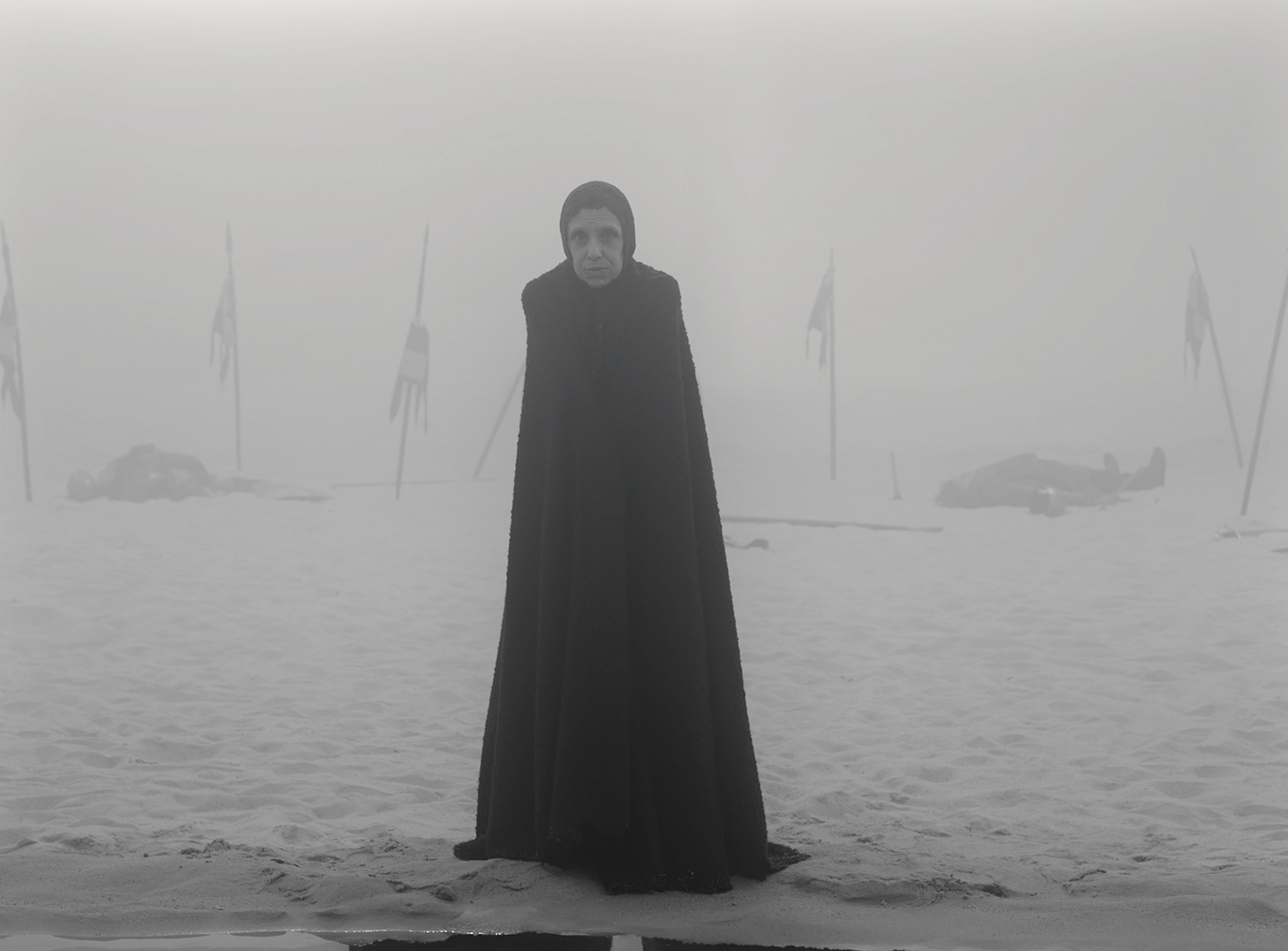
This highly stylized Macbeth narrows the frame (within a 1.37:1 aspect ratio) and simplifies the sets to place the actors in an evocative, imagined cinematic space. Delbonnel’s poetic lighting helps to reveal the emotions of the characters, and to frame the power of Shakespeare’s verse.
The filmmakers relied on Arri Alexa LF and Mini LF cameras paired with Cooke S7/i, and Fujifilm Fujinon Premista optics.
Delbonnel and Coen also spoke to AC about shooting Macbeth for this cover story from our January 2022 issue.
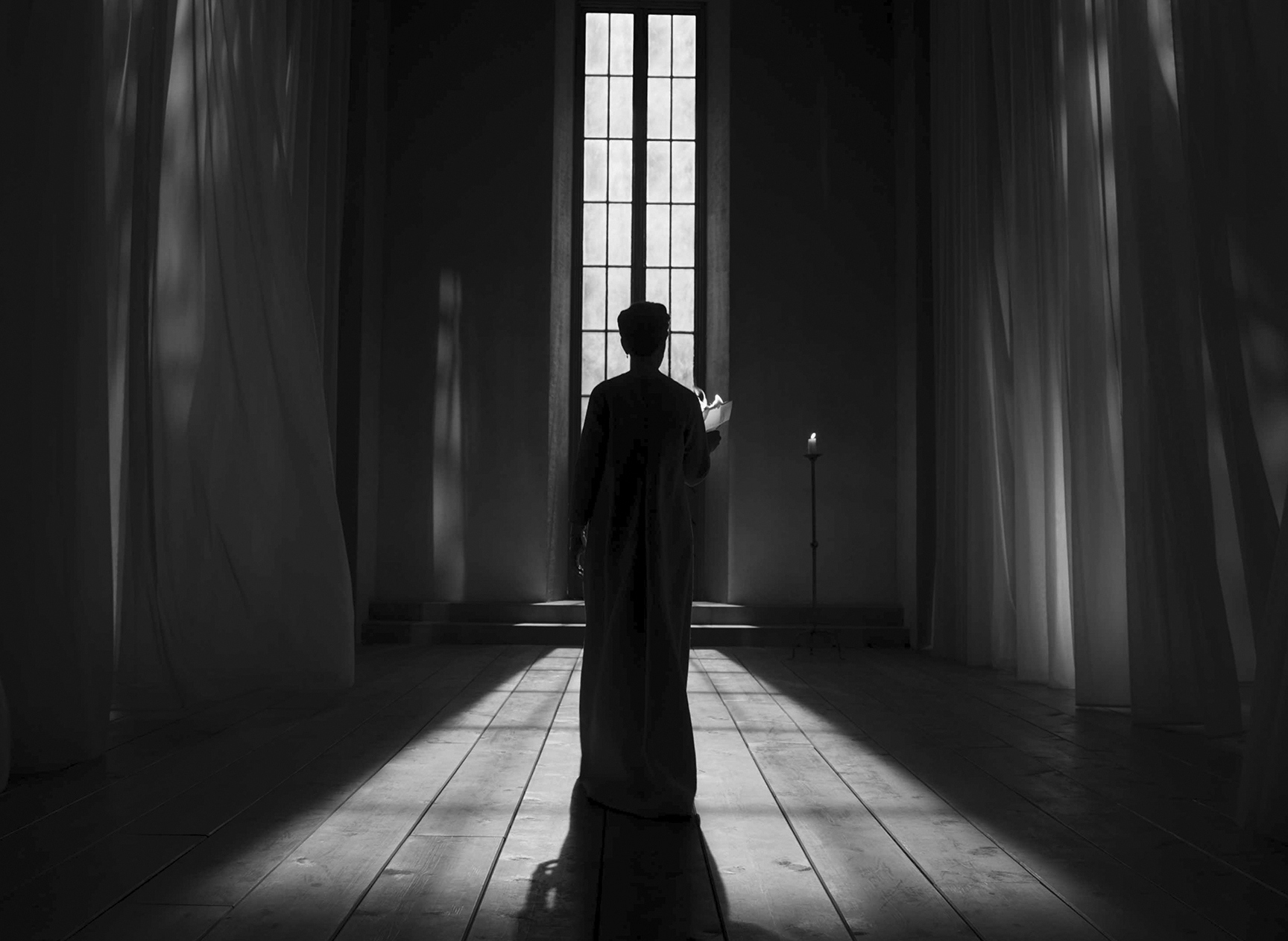
As a student, Delbonnel studied philosophy before making his first film as a director: the short Réalités rares.The great Henri Alekan was his cinematographer. Alongside this master of black-and-white photography, Delbonnel discovered his passion for light was stronger than directing. After graduating from the École supérieure d'études cinématographiques (ESEC) in the camera and light section, he sought work in New York City before returning to France, where he worked as a camera assistant on commercials and features before his career took on an international dimension in 2001, thanks to his collaboration with Jean-Pierre Jeunet on Le Fabuleux Destin d’Amélie Poulain, earning numerous accolades, including Academy and ASC nominations, for his fine camerawork. The duo would again collaborate on Un Long dimanche de fiançailles, earning more Oscar and ASC nominations.
Delbonnel has since collaborated with directors including Tim Burton (Dark Shadows, Big Eyes, Miss Peregrine's Home for Peculiar Children), Alexandre Sokourov (Faust, Francofonia), David Yates (Harry Potter and the Half-Blood Prince; earning another Oscar nomination) and Joe Wright (Darkest Hour; also Academy and ASC nominated) He also previously worked with co-directors Joel and Ethan Coen on Inside Llewyn Davis (earning more Academy and ASC nods) and The Ballad of Buster Scruggs.
Johnson is a California native and graduated from the Art Center College of Design. Inspired in part by the camera crews his father worked with as a television director, Johnson focused on cinematography, establishing himself with an impressive array of television series, movies and miniseries, including the 1997 retelling of Stephen King's The Shining. He was nominated for ASC Awards for his work in the telefilms Everybody's Baby: The Rescue of Jessica McClure (1990) and The Inheritance (1997), as well as the series The Others (2000) and Training Day (2018). Johnson parlayed this success into the feature film realm, with his credits including Jurassic Park III, The Last Castle, Hidalgo, Sky High, The Wolfman, Captain America: The First Avenger, The Expendables 2, Percy Jackson: Sea of Monsters and Greyhound.
Reporting by Benjamin B
Unit photography by Alison Cohen Rosa and D. Stevens, courtesy of A24/AppleTV+
You’ll find all episodes in our ASC Clubhouse Conversations discussion series here.

